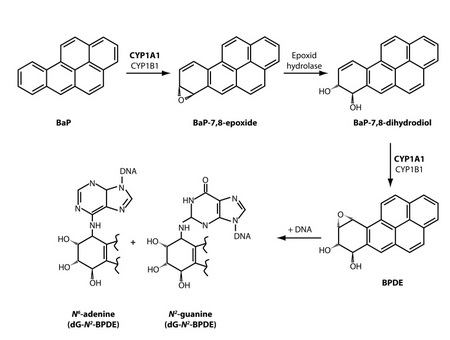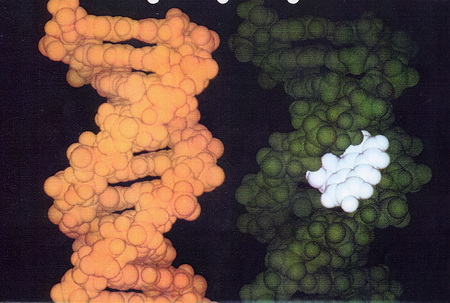How do polycyclic aromatic hydrocarbons cause cancer?
1 Answer
Usually, their metabolic products cause mutations of DNA.
Explanation:
A polycyclic aromatic hydrocarbon (PAH) is an organic compound that is composed of several aromatic rings.
A common example is benzo[a]pyrene (BaP).

Many PAHs have much more potent metabolic products.
For example, BaP is metabolized to benzo[a]pyrene-7,8-dihydrodiol-9,10-epoxide (BPDE).

An
The BPDE becomes covalently bonded to the DNA.

(From www.researchgate.net)
The adduct causes a disruption in the structure of DNA.

(From Burning Issues)
If the body's DNA repair enzymes cannot remove the adduct, there will be an accumulation of changes during DNA replication.
These accumulated changes can lead to mutations, tumors, and cancers.

